Browse
Youth Empowerment
No Preview Available
USADF Call for Proposals (Youth-led Agricultural Cooperatives)
USADF invites applications from registered African agricultural cooperatives, producer groups, processors, and enterprises for grant financing. Grants will support solutions that extend your organizations’ own capabilities to increase your revenues, create jobs, improve farmer incomes, and achieve sustainable market-based growth. USADF is accepting applications in the following countries:
Burundi, Cote d’Ivoire, DRC, Liberia, Mauritania, Nigeria, Senegal, Tanzania, Uganda, and Zambia
Click your country (above) to access the full request for applications including eligible value chains.
Application instructions
Your submission must include the following information from your organization:
financial statements for the last 2 years
registration document
completed grant application form, in English, or French
Applications must be in the sectors identified above for each country.
Applications can be no more than US $250,000.
Submit all documents to the e-mail address found in your country’s call for proposal by the specified deadline. Only complete applications will be considered.
Download a copy of the grant application form here:
ENGLISH APPLICATIONFRENCH APPLICATION
We look forward to reviewing your proposals!
Read more

By: Tony Milanzi
Due Date: Jan, 1, 0001
Agri-food systems
+1
Leave a comment

No Preview Available
GoGettaz Agripreneur Prize Competition 2024
Welcome to the sixth annual GoGettaz Agripreneur Prize Competition. This is where agrifood innovation meets impact.
Africa’s food sector faces mounting challenges in climate resilience, food security, and nutrition. The need for groundbreaking solutions has never been greater.
Are you an agripreneur leading the charge against these pressing issues? Do you have a transformative venture that’s making waves in the agrifood landscape? We want to hear from you.
Before you dive in, take a moment to review our important eligibility criteria and terms. Remember that you do not have to complete your application in one session. You can start today and save your progress to continue later. A high-quality application is how you will get your business noticed.
Here’s what you need to do to get started:
Join the GoGettaz Community when you enter the competition and you’ll get access to education, mentorship, and investment networks to help you launch, grow, or scale your agrifood venture.
Review the eligibility criteria and terms below.
Create your VC4A profile and begin your application! You can save your progress to continue later.
Are you ready to make your mark on Africa’s agrifood landscape?
Join us for the sixth annual GoGettaz Agripreneur Prize Competition and be part of the solution.
Apply now and let’s grow together. For more information, see our brochure or check out our terms and conditions.
https://vc4a.com/gogettaz/2024/
Read more

By: Tony Milanzi
Due Date: Oct, 6, 2024
Agri-food systems
+1
Leave a comment
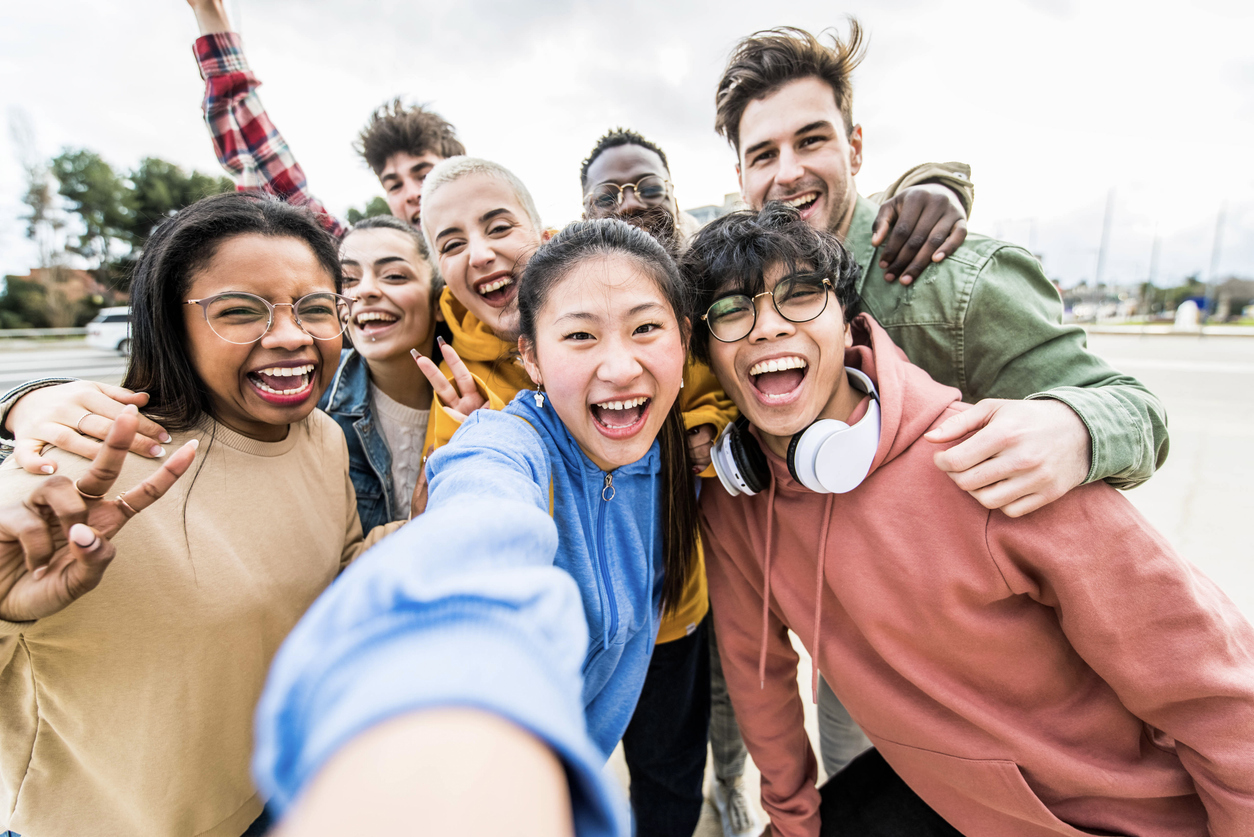
No Preview Available
1. Request for Proposals: Funding Bold Ideas for Youth Mental Health in 12 countries
We seek to fund innovative prevention and promotion ideas that target the early drivers of mental health and well-being in underserved 10- to 24-year-olds. We are looking for solutions that address both the specific upstream drivers of young people's mental health and well-being and the broader systemic barriers hindering the implementation and integration of mental health initiatives. Our focus is on culturally sensitive and community-driven approaches that consider the social and environmental factors influencing mental health. Projects must be implemented in at least one of 12 priority countries (Colombia, Ecuador,Ghana, India, Indonesia, Morocco, Pakistan, Romania, Senegal, Sierra Leone, Tanzania,and Vietnam) and align with locally-led landscape analyses. Three types of funding opportunities are available, each with different scopes, funding amounts, timelines, and evaluation criteria. Successful project teams will have a deep understanding of the mental health needs of young people in priority countries. Eligible applicants include organizations formed, legally incorporated, and able to receive and administer funding. A key requirement is the meaningful involvement of young people and/or those with lived experience of mental health challenges in the project's design, testing, and evaluation. To learn more visit
https://being-initiative.org/funding-opportunities/request-for-proposals-funding-bold-ideas-for-youth-mental-health-in-12-countries/
Read more

By: Tony Milanzi
Due Date: Jan, 1, 0001
Youth empowerment
Leave a comment
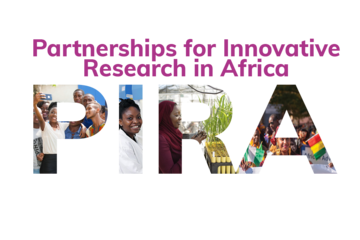
Partnerships for Innovative Research in Africa (PIRA) Strategic Funding
Partnerships for Innovative Research in Africa
2024 Call for ProposalsInfo session and Q&A slides
The Alliance for African Partnership (AAP), a consortium of ten leading African universities, a distinguished research network for African research institute, and Michigan State University, is inviting proposals for its Partnerships for Innovative Research in Africa (PIRA) strategic funding program. As a consortium-wide initiative, PIRA is a tiered funding opportunity designed to cultivate and support multidirectional, collaborative research partnerships at any stage of their development, whether they are initiatives to explore and create new relationships or scale existing ones. One of the unique aspects to these grants is the expectation that organizations will establish and develop fair and equitable partnerships from conception to closeout of the project, involving local stakeholders throughout the project, respecting their knowledge and expertise, and taking an adaptive approach that is responsive to the local context. Proposals should outline processes to establish such partnerships. Fair and equitable partnerships must also be established among members of the consortium if multiple organizations are working on the implementation of the project. Proposed partnership activities may entail cooperative research, capacity building initiatives, outreach and/or other activities that align with AAP’s pillars of building bridges, transforming institutions, and transforming lives. Proposals must address at least one of AAP’s priority areas: agri-food systems; water, energy and environment; culture and society; youth empowerment; education; health and nutrition; and, science, technology, and innovation.
Proposals are encouraged from diverse disciplinary perspectives. Submitted proposals must include principal investigators from both MSU and at least one African AAP member university. The project implementation timeframe will be 18 months.
FUNDING TIERS
The tiered funding structure is designed to support partnerships at different stages of maturity to create and strengthen relationships among institutions and act as a catalyst for research teams in securing external funding that will allow for long-term engagement. Applicants should submit proposals for the funding tier that best fits the level of engagement established among the PIs on the research team. However, AAP management reserves the right to relegate proposals to a different tier if deemed more appropriate during review. To ensure broad impact, more awards will be given at the planning grant level than the scaling grant level. Proposed activities for each tier may include, but are not limited to:
Planning Grants (up to $50,000), inception and early-stage partnership research activities, travel support for co-developing joint proposals (in accordance with all MSU travel guidelines), short-term capacity building trainings, network development, research symposia, or other activities that align with AAP’s priority themes and strategic objectives.
Scaling Grants (up to $100,000), continuation of ongoing partnerships that have the potential to significantly scale their research, capacity building, or outreach activities, broader institutional linkages, or other activities that align with AAP’s priority themes and strategic objectives.
ELIGIBILITY
The lead investigators for proposals must come from MSU and AAP African member universities. Proposals may also include partners from other institutions globally. Teams are encouraged to include partners from the private sector, governments, civil society organizations, and pan-African/global institutions.
Individuals who were PIs or co-PIs on grants from the previous round of PIRA grants or AAP’s strategic partnership grants are not eligible to lead proposals under this call but may participate as team members.
MSU ISP staff are not eligible to lead proposals.
GUIDELINES FOR APPLICANTS
All submissions must have a cover sheet and proposal narrative that includes the information listed below, a budget and budget narrative using the provided template, and letters of support. Please submit all application material via the application portal by Wednesday, August 14 at 11:59 PM EST.
Application with the project's title as well as names, institutional affiliations, titles of all principal investigators, and a brief (about 100 words) project summary
A proposal narrative, not to exceed 5,000 words with one appendix for references cited, that includes:
A description of the partnership, containing:
Capacity statements from each partner institution that outlines their respective strengths in relation to their proposed roles and responsibilities in the partnership
A brief description of the past or ongoing partnership, if applicable
The rationale for partnership and evidence that it will create or cultivate equitable, sustainable, and mutually beneficial partnerships
A problem statement that identifies the shared challenges to be addressed by the program activities, the theory of change, their relevance to AAP’s themes and pillars
Clearly defined objectives of the proposed partnership
A description of program activities as well as a logical framework that connects the proposed activities with their intended outputs, outcomes, and programmatic objectives
A timeline of activities
A monitoring, evaluating, and learning plan that outlines proposed indicators and collection methods
Identification of potential sources of additional funding that the partnership will pursue during the program’s period of performance
A line-item budget and budget narrative using the template provided. Templates and more information on budgetary considerations are below in BUDGET. A letter of support from each partner’s department, institution, or organization; and A CV or resume of each principal investigator (1-page max).
A letter of support for each PI from their dean or head of department that signifies buy-in from each partner at the institutional level. Please use the provided template
SELECTION CRITERIA
Program goals should align with at least one of AAP’s pillars:
Building bridges: Bringing people and organizations together to work toward common goals. Illustrative activities under this objective include: sponsoring thematic symposia or workshops that bring people together across sectors and disciplines or travel for preparation of proposals for larger grant applications. This also includes network development, communications among research groups or networks (e.g. digital innovations and digital forums), dissemination of knowledge through online journals and/or sharing of best practices among partners
Transforming institutions: Promoting sustainable and effective partnerships among institutions, enhancing resources, and increasing institutional capacity. Illustrative activities under this objective include: institutional capacity development at universities, NGOs, or in the public sector such as building financial management capacity, improving teaching and learning at universities, and/or increasing proposal development skills, among others.
Transforming lives: Supporting research with real-world impact that improves African lives and livelihoods. Illustrative activities under this objective include: putting research into action through evidence-based outreach and engagement, conducting early-stage research that has obvious potential to impact lives and livelihoods, improving dissemination of research outputs to practitioners and policy-makers, and/or designing innovative research-into-practice methodologies.
Submitted proposals will be evaluated according to the following criteria:
Evidence of a collaborative and equitable partnership that strengthens personal, professional, and/or institutional networks in a mutually beneficial and sustainable way. Other AAP principles that need to be demonstrated in the proposal and later in the implementation are mutual trust and respect, sustainability, innovativeness, co-creation, accountability, transparency, flexibility as well as multi-disciplinarity and trans-disciplinarity.
Alignment of proposed activities and program goal(s) to AAP’s 3 strategic objectives and 7 priority areas.
Potential for program deliverables to significantly contribute to their respective academic, technical, or technological fields.
Potential to create innovative models of community engagement and development that positively impact people’s lives.
Potential for principal investigators to attract and or leverage additional external funding to sustain program’s impact.
A thorough monitoring, evaluating, and learning plan that links program activities to their intended outputs and outcomes and includes a clear description of the MEL tools that will be used, what indicators will be measured, and a timeline for evaluation and reporting.
Gender equality, equity and inclusion are core values of AAP and are thus central to this call. All projects funded must demonstrate how they follow principles of gender and inclusion and should explain how applicants will integrate gender, equity, and inclusion issues in all stages of the project, including rationale, design, intended results, data collection, analysis, interpretation, and knowledge mobilization processes.
BUDGET
PIRA BUDGET TEMPLATE [.XLSX]
Using the template provided, applicants must submit a line-item budget and budget narrative for the life of the program that details each institution’s requested budget as well as an overall budget summary. Suggested line items are provided as guidelines but are not comprehensive or required. Proposed budgets should be co-created by the partnership teams and reflect an equitable distribution of funds, with each institution completing a separate tab within the budget template to show the anticipated disbursement of resources and cost sharing broken down by yearly expenditures. The budget narrative should clearly explain how the line items are calculated and for what purpose they will be used in achieving the program’s objectives. Please note that the MSU PI and their home department will be responsible for the financial administration of the award. As such, it is required that the MSU PI involve their department’s fiscal officer in the development of the proposed budget to ensure all financial guidelines and reporting requirements are met. Please submit budgets as an Excel file or similar formatted version that allows the reviewers to view the formulas used in the calculations.
Communications and Engagement10% of the total requested funds must be earmarked for communication and engagement efforts. For example, if a team is requesting a scaling grant for $100,000, at least $10,000 of that must be budgeted for communication and engagement efforts, such as developing creative projects that translate the research, engagement workshops and developing and utilizing dissemination tools such as video production, creation of digital resources, community engagement activities, etc.
Cost Share
10% of the total requested funds must be matched with contributions (monetary and/or in-kind) from all partners. The Co-PIs’ colleges, faculties. and/or departments will be expected to contribute to the costs of the proposed activities to ensure that the commitment to long-term partnering is shared by these units.
Ineligible Expenses
While funding may be used for a variety of activities, the following expenses are not eligible to be covered with the PIRA grants:
Regular salary of MSU faculty (summer salary is allowable)
Indirect costs (IDC)
Equipment exceeding $5,000
Construction-related costs
Total project salary & fringe cannot exceed 30% of total combined project budget.
SELECTION PROCESS
Proposals will initially be reviewed by the AAP management team according to the guidelines and criteria above. Short-listed applications will be assessed by external peer reviewers for quality of technical content. Final selections will be made by the AAP management team in consultation with its internal partners and consortium members.
SUBMISSION AND AWARD TIMELINE
APPLICATION PORTAL
Full proposal packages are due on Wednesday, August 14 at 11:59 PM EST and awards will be announced by early October. AAP management will work with awardees to finalize the plan and budget by November 20, 2024. Programs may begin according to their timeline but not before a final work plan and budget has been approved by AAP management. Programs must begin no later than January 22, 2025 and all program activities must be completed within 18 months of the start date. Progress will be due to AAP management at regular intervals throughout implementation. In addition, AAP will be conducting intermittent surveys of the awardees to evaluate the PIRA grant-making process and how successfully it embodies the AAP’s values of equity, transparency, and accountability.
Read more
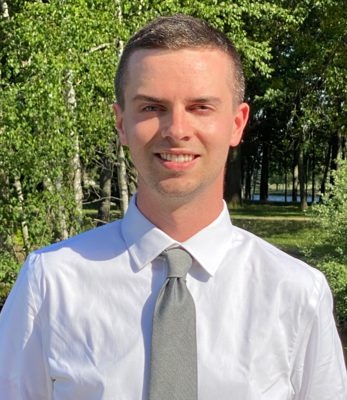
By: Justin Rabineau
Due Date: Aug, 14, 2024
Agri-food systems
+6
Leave a comment
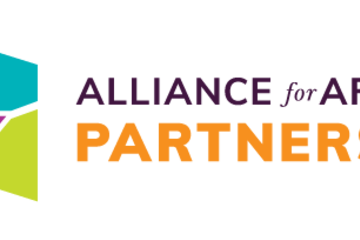
Transforming Institutions Strategic Funding
AAP seeks proposals from consortium members and their partners for projects that directly address AAP's Transforming Institutions pillar - transforming institutions to be better able to participate in sustainable, equitable, and research-driven partnerships that make a broader impact on transforming lives. Successful applicants will receive up to $20,000 USD in seed funding to develop international strategic partnerships with universities, institutions of higher education and research, and/or organizations in the public and/or NGO sectors.
Proposed projects should focus specifically on institutional and capacity strengthening. This could include projects that: aim to reinforce institutional strengths; contribute to individuals’ capacity strengthening, which will lead to institutional strengthening; plan for the creation of new units or institution-wide initiatives; and/or pilot new approaches to support research, teaching, or outreach that can be scaled up across the institution(s).Some specific examples of the types of programs that could fall under this funding initiative: developing plans or programs to improve institutional financial management structures, building capacity of administrative units or leaders, improving structures for outreach and research dissemination, creating new and innovative curricula or pedagogical approaches in priority areas, strengthening student service units focused on various aspects of student success, or institutional programs to promote diversity, equity, and inclusion (for faculty staff, and/or students). Proposals that solely focus on research topics unrelated to institutional capacity strengthening and do not directly address how the work contributes to institutional strengthening will not be considered.
I. Guidelines
Proposals may be submitted in one of the following three project categories in support of institutional strengthening and capacity development:
Exploratory Projects to support initial-stage partnership development. This funding is meant for new partnerships that have not previously worked together
Proposal Development Projects to support partners to develop a proposal in response to a specific funding opportunity
Pilot Workshop Projects to support short-term training activities or workshops
We highly encourage projects that incorporate South-South collaboration. This has been identified as an AAP priority and will be factored into the selection process. We also encourage collaboration across Francophone and Anglophone countries/consortium members.
Proposals that address at least one of the following focus areas will receive priority in review:
student success
financial management systems
diversity, equity, and inclusion (DEI)
science communication
Details on funding and development of applicants’ project budget:
Applicants can request a maximum of $20,000 USD.
Funding can cover travel and/or associated meeting or workshop costs. The budget may also cover salary/fringe expenses up to a total of $5,000 USD.
Travel can include any of the following—within Africa, to Africa from external locations, from Africa to the US, or to other locations outside of Africa. Virtual engagement is highly encouraged as it can be cost effective.
Applicants are required to contribute 20% in cost share for the project, in addition to the amount that AAP awards. For example, if an applicant requests $20,000 from AAP, the applicants will need to contribute a total of an additional $4,000 in cost share to the project, so that the total budget for the project would be $24,000.
Cost share refers to the resources a recipient contributes to the total cost of an agreement. Cost share can be cash, in-kind contributions (such as donated time of a faculty member) or a combination of the two.
The cost share required is a combined 20% contribution across all the partner institutions, with each institution contributing some amount. It must be verified in a letter of endorsement from the applicant partner institution leadership (e.g., Dean). Please see the link to the template that AAP has provided under Section IV. Proposal Requirements.
MSU PI’s should identify the relevant fiscal officer within their department and verify within the budget template
Indirect costs are not allowed. This is because AAP is an entity directly funded by Michigan State University. Projects funded by AAP do not allow for indirect, administrative, or contingent costs. AAP policy allows funding only for those activities that can be directly attributed to the funded project. Applicants are responsible for communicating with and receiving approvals from appropriate administrative, research, or finance offices at their institutions and to verify that they understand that indirect costs are not allowed under this grant program.
II. Eligibility
Proposals should include co-PIs (project leads) from each of the partner institutions included in the proposal. Proposals must include PI(s) from MSU and PI(s) from at least one other AAP consortium member (Egerton University, Makerere University, University of Dar es Salaam, Lilongwe University of Agriculture and Natural Resources, University of Botswana, University of Nigeria-Nsukka, Université Cheikh Anta Diop, Université des Lettres et des Sciences Humaines de Bamako, University of Pretoria, United States International University – Africa, and ANAPRI). As mentioned above, AAP highly encourages South-South collaboration and proposals with multiple consortium members and/or additional partners are welcomed.
Priority will be given to PIs who have not received funding from AAP previously through any AAP-funded program.
Faculty members may only be listed (as PI or as team member) on one proposal submitted to AAP for each round of funding.
AAP will work with successful applicants to verify a timeline for when activities will be completed. (Partnership teams should carry out projects between June 3, 2024 and August 29, 2025). Awarded funds must be transferred to the MSU PI's department by June 30, 2024.
III. Evaluation Criteria
Criteria that will be used to evaluate the proposals includes:
Evidence of a shared vision and mutually beneficial interests among the partners, and a joint commitment to the success of the proposed partnership
Clarity of the connection of proposed activities to AAP’s Transforming Institutions pillar
Demonstrated integration of gender, equity, and inclusion principles
Quality of short-term outputs/outcomes of proposed activities
Potential for a sustained, productive partnership; quality of long-term impacts of proposed activities
Potential for leveraging significant external funding
Indicators used to evaluate the outputs/outcomes of completed projects include:
Evidence of continued productive collaboration among partner institutions around transforming all organizations involved in the partnership
The number and quality of institutional improvements that stem from partnership activities
Symposia or conferences held to disseminate work stemming from partnership activities
Collaborative grant applications submitted and awarded
Collaborative research publications completed
Other measures of institutional transformation as proposed by the implementing teams
Reporting: A follow-up report including data on these criteria will be required 30 days after the project end date.
IV. Partnership Activities
Proposed partnerships should center on capacity strengthening activities, including external funding proposal development and dissemination of outputs, which contribute to transformation at all partnering institutions. Proposed activities should ultimately lead to potential long-term collaborations among the partner institutions. Follow-on funding may be allocated for continued support to develop these partnerships depending on the outcomes of the initial budget and availability of funds.
V. Partnership Funding
Transforming Institutions partnership funds will provide partial support of travel, meeting, and workshop costs for AAP consortium faculty members and their partners. The Co-PIs’ colleges, faculties. and/or departments will be expected to contribute to the costs of the proposed activities to ensure that the commitment to long-term partnering is shared by these units. A total of 20% match (monetary and/or in-kind) is required with contributions from all partners. These awards should ultimately result in the development and submission of a collaborative funding proposal (including partner institution faculty) for external funding, as well as having positive impacts on other indicators of institutional transformation.
VI. Proposal Requirements
Proposals must be submitted in English via the online submission form linked below and should include the following documents:
Narrative (maximum of five pages), which addresses the specific areas below. Please use these as section headings in the proposal, which will help applicants organize their proposals and help the reviewers score the proposals.
The proposed topics or issues that the activities will address
The activities being proposed for this funding. Please include a description of the activities, the role of each partner, and the timeline.
A general description of the partners and individuals who will take part in the project
The history of partnership among those involved and the potential for sustained future engagement
A description of the partners’ shared vision and how each partner will benefit from the proposed activities
Considerations taken for gender, equity, and inclusion (in terms of the team members and the project activities)
How the activities will contribute to transforming all the institutions included in the partnership. Please describe the objectives of the activities, the anticipated short-term outcomes of the project, and their relation to the institutions’ needs
The anticipated longer-term outcomes and impact of the proposed activities
Identification of external funding opportunities that could support the proposed research/activities in the future
Short project summary (200 words maximum) giving an overview of the work proposed including expected impacts, project outputs, etc.
Letters of endorsement from each applicants’ deans, department chairpersons, or supervisors committing to a total minimum of 20% matching funds, providing a description of any monetary or in-kind contributions from each partner institution, and acknowledging that indirect costs are not allowed. Please use the provided letter of endorsement template.
Proposed itemized budget. Please use the provided budget template.
VII. Submitting a Proposal
Please submit proposals via our online submission form. In addition to the information required on the submission form, be sure to include all required documents listed above in (narrative, letters of endorsement, proposed budget using the provided template).
Submission deadline: March 1, 2024 (11:59pm EST)
Questions
Please contact AAP Program Manager Justin Rabineau (rabinea1@msu.edu) or AAP Co-Director Amy Jamison at (jamisona@msu.edu) with any questions.
Read more

By: Justin Rabineau
Due Date: Mar, 1, 2024
Agri-food systems
+6
Leave a comment

UNLEASH Rwanda
Would you like to make a difference in your community? Are you passionate about the Sustainable Development Goals? Join the next UNLEASH Innovation Lab in Rwanda, a thriving start-up hub on the African continent.
The UNLEASH Innovation Lab in Rwanda will take place from December 2 to December 8, and changemakers aged between 18-35 will have the opportunity to apply for this transformative (and fully-funded!) experience until July 19.
During the Lab, 1,000 young participants from all over the world will come up with new ideas and co-create innovative initiatives through human-centered design thinking – a process that focuses on the real needs of the people that the solution caters to. Experienced facilitators and experts will guide the participants through different stages of the innovation process.
Who can apply?
The Innovation Lab in Rwanda is open to young people between the ages of 18 and 35. We select participants that are:
Passionate and committed to solving the world’s sustainability challenges
Creative and have an innovative mindset
Enthusiastic about working together with peers and experts
Able to understand and communicate in English
Apply Now: https://docs.google.com/forms/d/e/1FAIpQLSdKQHPtjR2UTrJjzxFPhc8MkZOmRMjFeOrp8jac5JQZ4tTNyQ/viewform
Learn More:
https://unleash.org/rwanda/
Read more

By: Raquel Acosta
Due Date: Jul, 19, 2023
Water, energy, and the...
+2
Leave a comment

Call for Proposals: MSU International Youth Day - Innovation Collaboratory
In honor of International Youth Day, an observance recognized by The United Nations and celebrated annually on August 12, GYAN's Innovation Collaboratory allows global youth to expand their networks, build strategic partnerships, discuss ways to achieve success, and share their positive contributions to their communities and nations.
International Youth Day 2023
Call for Presentation Proposals & Group Coordinator Nominations
The Global Youth Advancement Network (GYAN) at Michigan State University invites you to attend our virtual International Youth Day 2023: Innovation Collaboratory on Thursday, August 10, 2023, from 9:00 am to 11:00 am (United States Eastern Time Zone - EST).
In honor of International Youth Day, celebrated by the United Nations every August 12, GYAN will provide a platform for global youth to share their positive contributions to their communities and nations, participate in moderated panel discussions, expand their global networks, meet partners, enhance their professional capacities, and learn from peers and experts with a wide range of backgrounds and experiences.
If you would like to participate in this event as a youth presenter, submit a proposal to give a fifteen-minute presentation on your project, research, or innovative idea for solution to global issues. If your proposal is selected by the GYAN team, you will be contacted to create a PowerPoint presentation for the Innovation Collaboratory event. Proposals are due by Friday, June 30, 2023 (11:59 pm EST).
Or, if you would like to participate in this event as a youth group coordinator, please nominate yourself here. This year, the GYAN team will officially appoint five youth group coordinators who will serve as a vital link between GYAN and the youth of their respective panels. Group coordinators will be responsible for coordinating presenters and experts, as well as serving as panel moderators for the Innovation Collaboratory event. Appointed youth group coordinators will receive an award of $100 for their participation. (Please note this is not a salary, but rather a gesture of appreciation and recognition from the GYAN team). Self-nominations are due by Friday, June 30, 2023 (11:59 pm EST).
Or, if you would like to simply attend this event as an observer/ public audience, please register here.
Don’t hesitate to contact gyaninfo@msu.edu if you have any questions.
GYAN believes that young people are the catalyst for positive change in the world, and this event is a celebration of youth-led innovation as the key to a solutions-oriented future. We look forward to seeing you in August!
Read more

By: Raquel Acosta
Due Date: Jun, 30, 2023
Youth empowerment
+1
Leave a comment

U.S. Mission Uganda | Alumni Impact Awards
To celebrate the impact of U.S. program alumni as we celebrate 60 years of the U.S.-Uganda relationship, the U.S. Mission will acknowledge the outstanding work of Ugandan alumni through the Alumni Impact Awards. The Embassy will solicit nominations for 13 Award Categories (see below for list) from alumni and Embassy staff via an online platform. The nominations will be considered by a committee consisting of both Alumni and Embassy staff, with nominations of five finalists in the categories submitted to the Ambassador for approval.
The YALI-RLC Alumni Chapter of Uganda will provide administrative support for the award process and award ceremony, tentatively scheduled for January 21, 2023.
Link: https://ug.usembassy.gov/alumni-impact-awards-nominations/
Read more
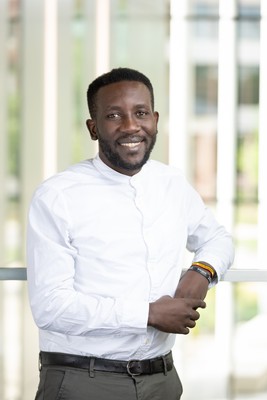
By: Raymond Musiima
Due Date: Nov, 25, 2022
Youth empowerment
Leave a comment

U.S. Mission Uganda | Alumni Impact Awards
To celebrate the impact of U.S. program alumni as we celebrate 60 years of the U.S.-Uganda relationship, the U.S. Mission will acknowledge the outstanding work of Ugandan alumni through the Alumni Impact Awards. The Embassy will solicit nominations for 13 Award Categories (see below for list) from alumni and Embassy staff via an online platform. The nominations will be considered by a committee consisting of both Alumni and Embassy staff, with nominations of five finalists in the categories submitted to the Ambassador for approval.
The YALI-RLC Alumni Chapter of Uganda will provide administrative support for the award process and award ceremony, tentatively scheduled for January 21, 2023.
Read more

By: Raymond Musiima
Due Date: Nov, 25, 2022
Youth empowerment
Leave a comment
International Conference Child Protection and the Rights of the Child: Transnational Perspectives
Historically, children have been seen as serving diverse strategic and emotional interests, both those held by individual families and by states. Views about children and their welfare have changed over time and across cultures. Children’s changing roles and questions about their agency are significant sites of historical study today. But at this political moment, the role of the state and other institutions in overseeing children’s issues is increasingly under debate across varying national contexts.
At the turn of the twentieth century in the west, the protection of children deemed unsafe or in crisis was framed in terms of saving children from various social, economic, moral, or religious dangers. Interventions in the “best interests” of children were both private and public, with religious organizations and state institutions playing key roles. In many colonial contexts, child welfare practices intersected closely with race, Indigeneity, and imperial socio-economic agendas. While some children were positioned as symbols of the health or vitality of the nation, other children of different races, classes, or nationalities were targeted as sites of danger. Protecting specific children safeguarded a specific version of the nation and its future.
By the mid-twentieth century, child protection discourses (often imagined through intervention from the state and/or religious organizations) existed alongside an emergent international human rights discourse that increasingly centred the child as a capable actor. There is also an important critique of the human rights framework as too individualistic and too western in focus. Nevertheless, the adoption of the Geneva Declaration on the Rights of the Child by the League of Nations in 1924 started to shift international discussions about child protection toward a framework of rights, entitlements, and transnational obligations. Although far from perfect, this rights framework has since been affirmed in several international instruments including the 1959 UN Declaration on the Rights of the Child, the 1989 Convention on the Rights of the Child, and the 1993 Hague Convention on Protection of Children and Co-operation in Respect of Intercountry Adoption, as well as several child labour regulations of the International Labour Organization.
The main objective of this conference is to map global patterns in discourses, politics, policies, and practices in child saving, child protection, and the rights of children. We are interested in exploring the ways that changes and (dis)continuities in the relationship and transition from child saving to rights entitlements have been framed and whether these changes indicate linear progress or something far less straightforward or far more limited in scope or applicability. We are also interested in the intersections between local approaches and transnational trends in child welfare, protection, and children’s rights. How have shifts in social attitudes, politics, and discourse shaped child welfare policies? What are the impacts of these changes on the wellbeing of children and, indeed, conceptions of childhood and youth?
We invite historians and scholars from related disciplines at all career stages who are interested in addressing these questions in diverse geographic spaces to submit proposals for this conference. We recognize that the language of saving children is rooted in particular countries and in the period from the late nineteenth century onwards. Nevertheless, we are also interested in submissions that consider efforts to support or protect children in different time periods and places as well as within different conceptions of childhood. We are seeking proposals that explore the following subtopics from local, national, regional, and transnational perspectives:
Themes:
• Colonial and Imperial Child Welfare Policies and Practices
• Settler Colonialism and Indigenous Children
• Children, the State, and Religion
• Transnational Organizations and Declarations of Child Rights
• Alternatives to the children’s rights framework
• Child Ability and Disability
• Child Labour
• Maturity and Age of Consent
• Children and the Law
• Race, Ethnicity, and Poverty in Child Protection and Child Removal
• Childism as a Lens to Interrogate Child Protection and Children’s Rights
Dates/format/funding:
January 27-29, 2023
Abstracts and brief cv’s are due June 30, 2022.
The conference will be hybrid, with the option of switching to a fully virtual format if needed. We are in the process of applying for funding. We cannot guarantee that travel funding will be available. We anticipate funding for graduate students’ registration.
Contact Info: Send abstracts and brief cv’s to - childrights2023@gmail.com by June 30, 2022
CONVENERS:
Dr. Juanita De Barros, Centre for Human Rights and Restorative Justice / Department of History, McMaster University
Dr. Karen Balcom, Centre for Human Rights and Restorative Justice / Department of History/ Gender & Social Justice, McMaster University
Carly Ciufo, Centre for Human Rights and Restorative Justice / Department of History, McMaster University
ORGANIZERS:
Centre for Human Rights and Restorative Justice (CHRRJ), McMaster University
Wilson Institute for Canadian History, McMaster University
Department of History, McMaster University
Faculty of Humanities, McMaster University
McMaster Children & Youth University, McMaster University
Read more

By: Raquel Acosta
Due Date: Jan, 27, 2023
Culture and society
+1
Leave a comment
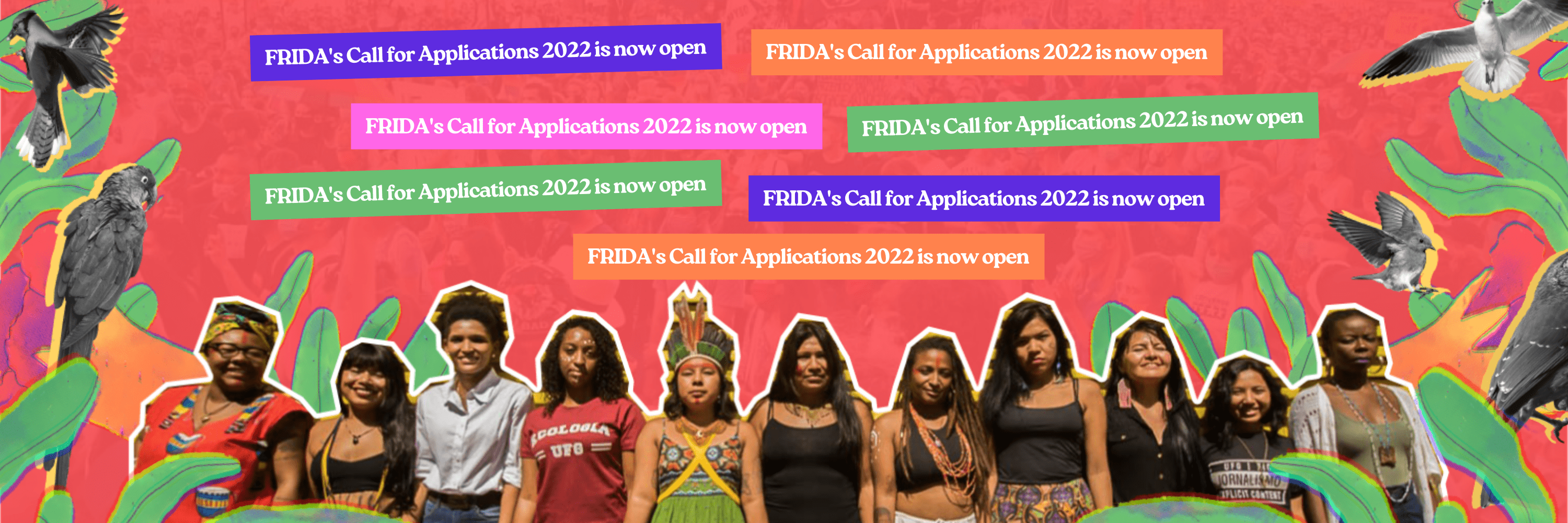
No Preview Available
FRIDA's 8th grant cycle
Applications from young feminist groups from all majority countries to apply. More information is here.
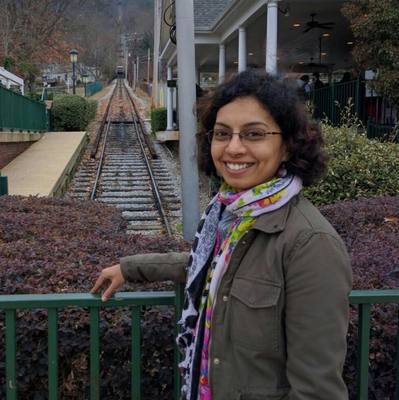
By: Rajalakshmi Nadadur Kannan
Due Date: May, 4, 2022
Culture and society
+2
Leave a comment

No Preview Available
Young African Leaders Programme
The Young African Leadership Programme funded by the European Commission is a tailor-made fellowship and training programme aiming at catalysing and fostering changes as envisioned in the Africa Agenda 2063 and in the Africa-EU Partnership. After a pilot cohort in Autumn 2021, the second cohort of Young African Leaders is expected in Florence in September 2022
The Young African Leaders Programme is a fellowship scheme that provides a unique opportunity for policy experts from Africa (all regions) to further develop their policy work and professional and leadership skills amidst international experts.
Furthermore, the Programme aims at creating new networks, connecting a strong cohort of leaders committed to driving change in their own countries and across the continent, as well as address the gender gaps and foster inclusivity in leadership roles.
In the dynamic academic environment of the European University Institute (EUI) in Florence, selected participants will take part in workshops, training and skills development sessions, conferences, and study visits in Europe. Interaction with the other fellows, policymakers and the academic community at the EUI will make this a truly unforgettable experience.
The structure of the Programme will be as follows:
Executive Training Seminars on thematic issues;
Professional Development Workshops, providing a set of leadership skills, tools and concrete case studies;
Study Visits to EU institutions, relevant academia, and international organisations
Final individual written assignment
Award of the YALP certificate of attendance
Connection to network of scholars and practitioners knowledgeable in relevant transnational governance
The three-month leadership programme takes place from the 1 September 2022 to the 30 November 2022. Fellowships are fully-funded with a grant of € 2,500 per month. The selected African fellows must live in the area of Florence for the duration of their stay. The language of the Programme is English. Where possible, the STG will seek to integrate French. The Programme has an intensive training schedule, and is therefore a full-time and fully-funded fellowship scheme.
Who should apply?
The Programme targets mid-career, high potential policy-makers, diplomats, and professionals from Africa, working in national and local authorities, regional, continental, international organisations and development partners, civil society organisations, academia, media and private sector, in Africa. More precisely, the Programme is open to professionals (M/F/X), mid-career and executives alike, who are nationals of African countries, residing in Africa and are up to the age of 35.
This Programme is supported by the European Commission, Directorate-General for International Partnerships. This Call for applications is launched under a suspension clause, related to the final approval of the financing decision of the Programme by the European Commission. According to such clause, should not the financing decision be taken, the EUI/STG reserve the right to cancel the call without any prejudice to the Institute and potential beneficiaries.
This programme is supported by the Directorate-General for International Partnerships of the European Commission.
For enquiries about applications please vist: Young African Leaders Programme • European University Institute (eui.eu)
Or contact: apply.fellowships.stg@eui.eu
Read more

By: Raquel Acosta
Due Date: Jul, 4, 2022
Culture and society
+1

Leave a comment